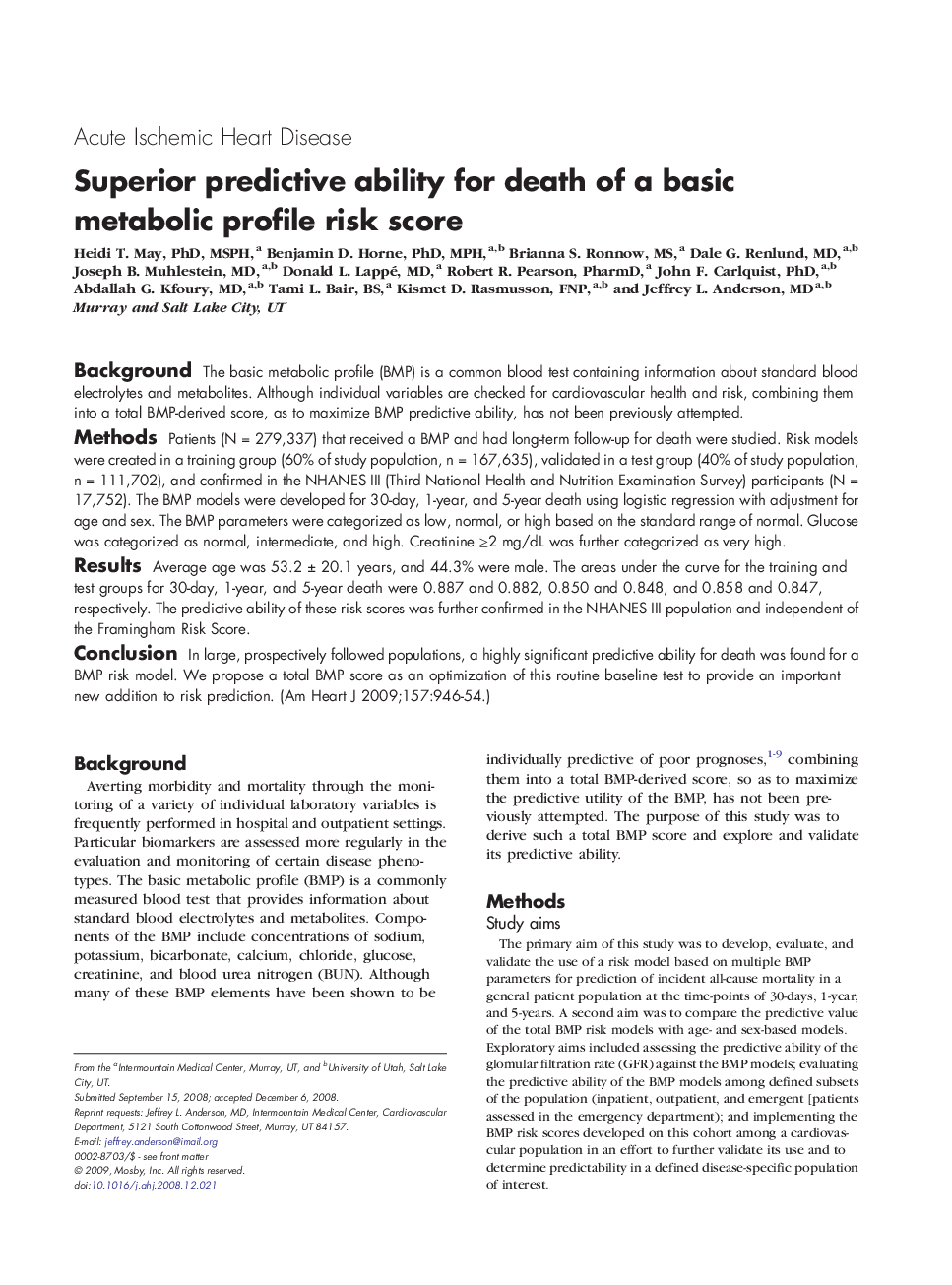| Article ID | Journal | Published Year | Pages | File Type |
|---|---|---|---|---|
| 2849760 | American Heart Journal | 2009 | 9 Pages |
BackgroundThe basic metabolic profile (BMP) is a common blood test containing information about standard blood electrolytes and metabolites. Although individual variables are checked for cardiovascular health and risk, combining them into a total BMP-derived score, as to maximize BMP predictive ability, has not been previously attempted.MethodsPatients (N = 279,337) that received a BMP and had long-term follow-up for death were studied. Risk models were created in a training group (60% of study population, n = 167,635), validated in a test group (40% of study population, n = 111,702), and confirmed in the NHANES III (Third National Health and Nutrition Examination Survey) participants (N = 17,752). The BMP models were developed for 30-day, 1-year, and 5-year death using logistic regression with adjustment for age and sex. The BMP parameters were categorized as low, normal, or high based on the standard range of normal. Glucose was categorized as normal, intermediate, and high. Creatinine ≥2 mg/dL was further categorized as very high.ResultsAverage age was 53.2 ± 20.1 years, and 44.3% were male. The areas under the curve for the training and test groups for 30-day, 1-year, and 5-year death were 0.887 and 0.882, 0.850 and 0.848, and 0.858 and 0.847, respectively. The predictive ability of these risk scores was further confirmed in the NHANES III population and independent of the Framingham Risk Score.ConclusionIn large, prospectively followed populations, a highly significant predictive ability for death was found for a BMP risk model. We propose a total BMP score as an optimization of this routine baseline test to provide an important new addition to risk prediction.
